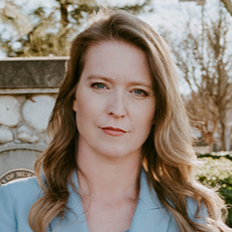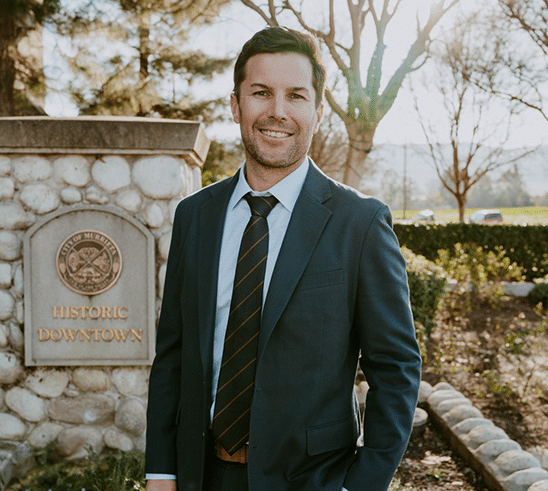Share

Facing a criminal case while also managing a mental health condition can feel overwhelming. Mental health diversion in California, under PC 1001.36, provides many individuals with the opportunity to participate in a treatment program first, with their case dismissed if they adhere to the plan.
At Gressley & Donaldson, we focus on helping clients use this path when the law allows, and we take pride in being clear and practical about what works and what does not.
This article explains how mental health diversion works, who qualifies, and what to expect in court. It is educational only, not legal advice, and every case depends on its facts within the criminal justice system. If you have questions about your mental health issues or situation, talk with an attorney before making decisions.
Understanding Mental Health Diversion Under California PC 1001.36
Mental health diversion is a pretrial program that pauses a criminal case so a person can enter mental health treatment. If the court approves diversion and you complete treatment, the charges are dismissed and the arrest is treated as if it never happened, with limited exceptions. The program can be inpatient, and it must fit your specific mental health needs.
Courts across California use this law, and judges look at both your mental health treatment plan and the defendant’s prior criminal record when deciding whether to grant it.
Overview of the Mental Health Diversion Program in California
PC 1001.36 allows eligible defendants to enter a mental health treatment program instead of proceeding with standard prosecution. Completion can lead to dismissal and record sealing, which can be life-changing for work, school, and housing. Diversion is a pretrial intervention, so it is usually requested and decided before a plea is entered.
If the court approves diversion, criminal proceedings pause while you work through the plan and attend progress hearings.
Eligibility and Qualifications for Mental Health Diversion
The law sets out several requirements the court must find before it can grant diversion. The basics are listed below in plain language.
- A diagnosed mental disorder listed in the DSM, with proof of mental health diagnosis or treatment within the past five years from a qualified mental health professional, excluding antisocial personality disorder and pedophilia.
- The mental disorder was a significant factor in the alleged offense. Courts presume it was, unless clear and convincing evidence shows otherwise.
- A qualified mental health professional believes the symptoms will respond to mental health treatment, you consent to diversion and waive speedy trial rights, and you agree to comply with treatment.
- You do not pose an unreasonable risk to public safety if treated in the community, as described in Penal Code 1170.18.
Some current charges are not eligible under PC 1001.36(d). These include the following:
- Murder or voluntary manslaughter.
- Crimes that require sex offender registration under PC 290, except indecent exposure under PC 314.
- Rape, lewd acts with a child under 14, continuous sexual abuse of a child, and similar sex crimes are listed.
- Certain offenses involving weapons of mass destruction under PC 11418(b) or (c).
If you meet the legal requirements and have a solid mental health treatment plan addressing your relevant mental disorder, the court can consider diversion after it hears from both sides.
Mental Health Treatment Program and Ongoing Supervision
The court must be satisfied that your treatment plan fits your mental health needs. You can be referred to inpatient or outpatient resources, including collaborative courts or county mental health agencies, if they agree to take the case and have room.
Providers must send regular written medical records and progress reports to the court, defense, and prosecutor, as required by PC 1001.36(f)(1)(B). Time limits apply: up to 1 year for misdemeanors and up to 2 years for felonies.
- You start specialized mental health risk treatment with a named provider and schedule.
- The court sets progress hearings to review reports and compliance.
- If restitution is owed, the court can order payment during diversion, and an inability to pay is not grounds for denying or terminating diversion.
Clear, reliable reporting is a big part of staying on track, and missing reports can trigger a court hearing.
| PC 1001.36 Time Limits and Reporting | Misdemeanor | Felony |
| Maximum diversion length | Up to 1 year | Up to 2 years |
| Progress review schedule | Set by the court, often every 30 to 90 days | Set by the court, often every 30 to 90 days |
| Reports required | Provider sends regular progress reports to the court, defense, and prosecutor | Provider sends regular progress reports to the court, defense, and prosecutor |
| Restitution | May be ordered and paid for during diversion | May be ordered and paid for during the diversion |
Courts can adjust the defendant’s treatment plan to fit medical needs, but you must follow the plan to keep your case paused.
Public Safety and Judicial Considerations
Judges must consider the danger to public safety under PC 1001.36(c)(4). They can weigh opinions from the district attorney, defense, and mental health professionals, along with your treatment plan, criminal history, and the current charge.
If problems arise, the court can hold a hearing under PC 1001.36(g). That hearing can address reinstating the case, changing treatment, or starting conservatorship proceedings when a qualified expert shows that level of need.
- New criminal charges during diversion can trigger a hearing, especially if they involve a new felony or a violent misdemeanor.
- Unsatisfactory treatment performance, documented by a qualified expert, can also lead to a hearing.
- Grave disability findings can shift the case to a conservatorship track.
Courts aim to balance safety with treatment, and they use these hearings to keep cases on the right track.
Record Sealing and Post-Diversion Relief
If you complete diversion successfully, the court dismisses the charges, and the arrest is deemed never to have happened. Access to the record is restricted under PC 1001.36(h) and 1001.9, which helps with jobs, housing, and school, but must be verified by a qualified mental health expert.
There are exceptions. Law enforcement and some agencies still have limited access, and peace officer applicants must disclose the arrest if asked. Records created due to diversion that relate to mental health are not used in other proceedings without your consent, unless they meet strict constitutional rules.
Courts can review relevant and credible evidence of prior diversion history when deciding a new diversion request, but the bar for using mental health records is high.
Seeking Appellate Review of Denial of Mental Health Diversion
If a judge denies diversion and the ruling is legally off base, an appeal can be an option. Appellate courts review these denials for abuse of discretion, meaning the trial judge ignored the law or the facts in a remarkable manner.
A strong record helps on appeal, such as an expert report, a clear link between the disorder and the incident, and a treatment plan with real providers. Talk with a lawyer quickly, since deadlines move fast.
Why Choose Gressley & Donaldson for Mental Health Diversion Representation
Our team knows PC 1001.36 and how local courts handle these motions. We build treatment-forward plans, gather the right reports, and present your story clearly and credibly.
We push for outcomes that connect clients to care rather than jail whenever the law allows. Your goals matter to us, especially if the defendant suffers from a mental health issue, and we fight for the best results the law supports.
Contact Gressley & Donaldson for Help with Mental Health Diversion
If the defendant’s mental disorder is part of your case, you deserve a plan that treats the condition and protects your future. Reach out to talk through eligibility, timing, and the documents that move judges. Call 951 319-3199 or visit our website to schedule a consultation. We welcome your questions and are ready to help you take the next step.
Frequently Asked Questions
Here are quick answers to common questions we hear about mental health diversion in California.
- Can you apply for mental health diversion after entering a guilty plea in California?
PC 1001.36 is designed as a pretrial program. You need to request diversion before entering a guilty or no contest plea, so raise the issue early with your lawyer.
- Is mental health diversion available in all California counties?
Yes, PC 1001.36 is a statewide law. Local procedures can differ, so the filing steps and hearing schedules can vary by courthouse.
- Does participation in mental health diversion show up on a background check?
When you complete diversion, the court dismisses the case and orders the arrest treated as though it never occurred, with access restricted. Certain agencies, including law enforcement, can still view sealed records for limited uses.
- Can you be placed in custody during mental health diversion?
The goal is treatment in the community. If someone stops complying or poses a safety risk, the court can modify the plan or reinstate the criminal case after a hearing.
- What happens if the mental health diversion treatment isn’t working?
PC 1001.36(g) allows the judge to hold a hearing. The court can adjust the plan, restart criminal proceedings, or consider a conservatorship if a qualified expert demonstrates the level of need.
- Can substance use mental disorders qualify for mental health diversion under PC 1001.36?
If you are diagnosed with a qualifying substance use disorder, that can support eligibility as long as the statutory presumption that the disorder was a significant factor in the alleged offense is not rebutted.
- Does mental health diversion apply to veterans with PTSD or trauma-related disorders?
Yes, schizoaffective disorder, PTSD, and other trauma-related disorders can qualify if diagnosed by a qualified professional and the other requirements are met. Veterans and military service members can also explore separate military diversion programs when eligible.
- What’s the difference between mental health diversion and other diversion programs in California?
Mental health diversion focuses on DSM-recognized mental disorders and treatment. Other diversion programs may be available for drug offenses, bad checks cases, for military service members and veterans with service-related conditions, or for those facing general misdemeanors.
- Can mental health diversion help with restoring firearm rights or professional licenses?
Dismissal can improve licensing and employment outcomes, but some limitations may still apply. The prosecution can also ask the court to impose a temporary firearm restriction during diversion when safety concerns are proven.
- Can charges be dropped due to mental illness in California?
PC 1001.36 creates a path to dismissal after treatment. If you complete the plan and the court finds satisfactory performance, the charges are dismissed and the arrest is treated as if it never happened.



